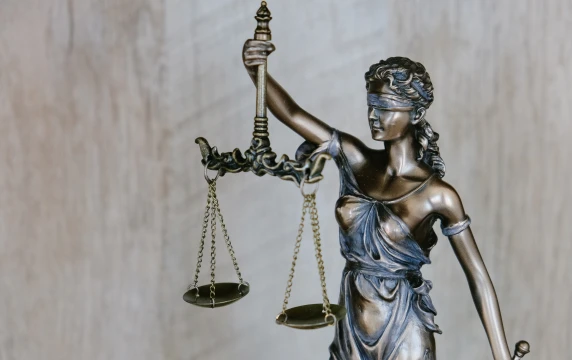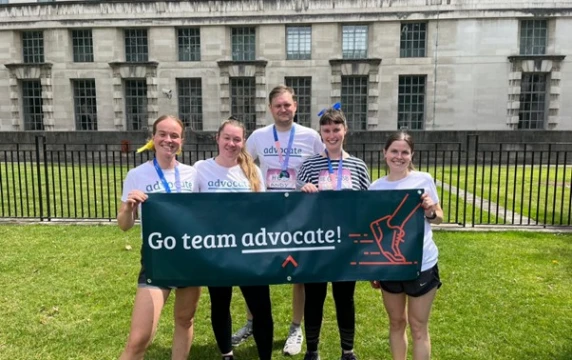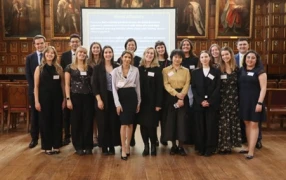Andrew Walker QC
2018 Chair of the Bar and Bar Pro Bono Award Winner 2009, Andrew Walker QC, tells us about the case that made his pro bono career.
To celebrate Volunteers' Week, we spoke to some of our fantastic Pro Bono Ambassadors about what drives them to do pro bono work. These are the barristers who not only dedicate a generous amount of time and expertise to fighting access to justice but encourage others in their chambers to do the same. We couldn't do the work we do without our volunteers - the whole Advocate team is incredibly grateful for their support.
Our ambassadors take us through their experience of pro bono throughout their career, from their very first case to their most memorable, as well as lessons they have learned and advice for any lawyers out there who are sat on the pro bono fence. Read on to see what Andrew Walker QC has to say.

At what stage in your career did you take on your first pro bono case?
A few years into practice.
Why did you decide to undertake pro bono work?
My first pro bono was when I learned my client's full story. Life had dealt him a terrible blow, and I could make a small contribution to getting his family back on their feet by not charging him. My first 'proper' pro bono was when someone was needed, I was free for a hearing, and the case sounded deserving. I just said 'yes'. It seemed the right thing to do.
What was the most memorable case you worked on, and what did you do?
The case was the one which led to my winning the Pro Bono Award. It was, in practice, the first significant piece of pro bono work that I did, as it involved every stage in the case from the initial possession hearing. It was in 2009, so I was a senior junior by then, as I took silk less than 2 years later. It was a mortgage possession claim, in which the clients had sold their home to a ‘sale and rent back’ organisation, and been granted a tenancy in return, which they thought would continue for the rest of their lives. The buyer had borrowed money to buy their house, but then failed to pay the mortgage, hence the mortgage possession claim.
We were able to establish that their tenancy – and some promises made to them – were binding on the mortgage company, and put them in the position of being able to stay indefinitely, so long as they could continue to pay. It was the only case of this sort, I think, to succeed – subsequent cases were taken up to the Supreme Court but in those cases, the mortgagees won, so my clients were rather fortunate. If the same case arose now, I suspect they might lose. We also secured the first substantial (not the very first) pro bono costs order – £20,000, if my memory serves me – and I believe that this was paid.
What effect did pro bono work have on your career?
It helped me to broaden my understanding of my clients' perspectives and needs, to be less afraid of taking on a case without a solicitor, and to appreciate the extent to which, what I might think is straight forward law, can be confusing, intimidating and overwhelming for clients.
What is the most rewarding thing about doing pro bono work?
Giving those who deserve our help the reassurance and confidence to deal with their situation that comes with having been listened to and given an explanation of what is happening that they can understand; and even more so when I can help to change the outcome for the better.
What advice would you give to any barrister unsure about whether to start doing pro bono work?
Talk to someone who has done it. Perhaps even do your first case jointly. There is much less to worry about than you might think.
A quarter of the Bar of England and Wales are signed up to our panel of volunteers. Are you? To join the panel, download the registration form here, and soon, you'll be able to say "I Do Pro Bono" too!





